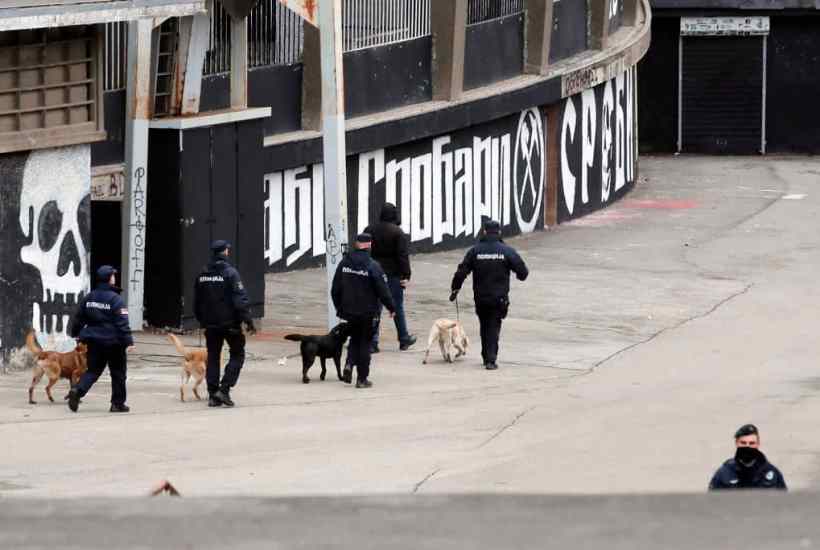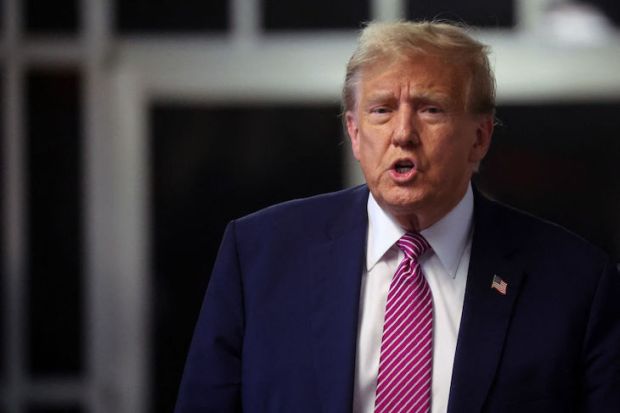Is Serbia being terrorised into supporting Ukraine? The question may sound like it comes from the fevered imagination of a Kremlin propagandist, but it’s being asked with increasing urgency in Serbia. The country has been buckling under a tsunami of fake bomb threats which the government claims is being orchestrated by pro-Ukrainian forces after Serbia refused to sanction Russia.
Thousands of threats have targeted Serbian schools, hospitals, shops, tourist attractions and airports since Russia’s invasion of Ukraine began. So far no bombs have gone off. But the threats are spreading fear and putting an enormous burden on public resources, with evacuations and top-to-bottom police searches becoming a part of everyday life.
The threats initially targeted Air Serbia planes still flying from Belgrade to Moscow, despite the severing of European air links with Russia after the invasion of Ukraine began. Serbian President Aleksandar Vučić first claimed that Ukrainian intelligence services and ‘one EU country’ were behind the bomb scares.
Kyiv furiously refuted the allegations, but the situation is decidedly murky. Among the hundreds of bomb threats received in the last few days, one was sent to the editorial office of a pro-European newspaper with a spin-tingling message: ‘Death to all those who stand in the way of freedom. Down with Putin. Down with Vučić.’
The anti-Russian sentiment of the email is the exception rather than the rule. Most of the bomb threats are disturbingly matter of fact, merely providing details of supposed targets without context. Others are terrifyingly graphic, with senders masquerading as tortured individuals hell-bent on destruction. Threats are often mass mailed to a wide range of supposed ‘targets’: one particularly twisted example, sent to several schools and a nursery in Belgrade last week, may have been inspired by recent mass shootings in America. The sender claimed to ‘have no future’ and promised to ‘kill myself and take as many lives with me as possible.’ Despite the absence of any clear common thread to the threats, the Serbian government is convinced that pro-Ukrainian forces are responsible for the psychological terror campaign.
The government claims Serbia’s continued refusal to sanction Russia has put an international target on its back. Prime Minister Ana Brnabić described the threats as ‘a form of pressure for not imposing sanctions on Russia, coming from abroad. It is not naïve at all, it is not accidental; it is something which has been well prepared and carefully planned.’
But things don’t appear quite that simple – not least because other countries in the Balkans, including EU member Croatia, are also receiving bomb threats, albeit on a much smaller scale. On Friday, it emerged that Interpol had made an arrest in Gambia over the Serbian threats; the alleged perpetrator was apparently working in collusion with a Polish student. The Serbian Interior Ministry previously announced that eight threat sources so far identified have been in Poland, four have been in Gambia, two each in Iran and Nigeria, and one each in Ukraine, Slovenia, and Russia.
Some Serbian analysts now suggest the threats could actually be a pro-Russian exercise to stop Serbia sanctioning Moscow. But the idea that malign pro-Ukrainian actors are behind the threats fits neatly with the country’s resentment towards the West, stemming from Nato’s intervention in the Balkans in the 1990s.
Nato is still seen by many Serbs as an essentially aggressive military alliance due to its bombing campaign against Serbia during the Kosovo War in 1999. At a memorial service for victims of the bombing in March this year, Serbia’s defence minister called western intervention ‘an injustice that has been done to our country for which no one has apologised clearly or loudly enough.’
It’s therefore no surprise that many Serbs scoff at claims that Russia invaded Ukraine without any provocation from the West.
This in turn has led Serbia to clash with its European neighbours. This was harshly exposed during a fiery joint press conference between President Vučić and German Chancellor Olaf Scholz in Belgrade last weekend – when Scholz said that aspiring EU members such as Serbia should adopt the bloc’s sanctions against Moscow. Vučić hit back by likening Russia’s invasion of Ukraine to Nato’s intervention over Kosovo.
It might have been hoped that Putin’s invasion would finally turn Serbia against its long-time ally. But war in Ukraine has instead highlighted Serbia’s fundamental sympathy for Russia which reaches beyond political alliance to a more deep-rooted sense of ethnic and religious kinship.
There was fury in Serbia when a visit by Russian Foreign Minister Sergei Lavrov was cancelled last week after Bulgaria, North Macedonia and Montenegro closed their airspace to him. A popular comment on one of Serbia’s leading news servers summed up the pro-Russian public response to other Slavic nations: ‘No smaller states, no greater vassals.’
For Serbia, this mysterious wave of bomb threats has become proof that Ukraine and the West cannot be trusted. Notwithstanding the EU’s renewed drive for expansion in the Western Balkans, Serbia remains bound to Moscow – and whatever the truth about the bombs, the belief has become entrenched that Russia, not the West, is Serbia’s true friend.
Got something to add? Join the discussion and comment below.
Get 10 issues for just $10
Subscribe to The Spectator Australia today for the next 10 magazine issues, plus full online access, for just $10.




















Comments
Don't miss out
Join the conversation with other Spectator Australia readers. Subscribe to leave a comment.
SUBSCRIBEAlready a subscriber? Log in